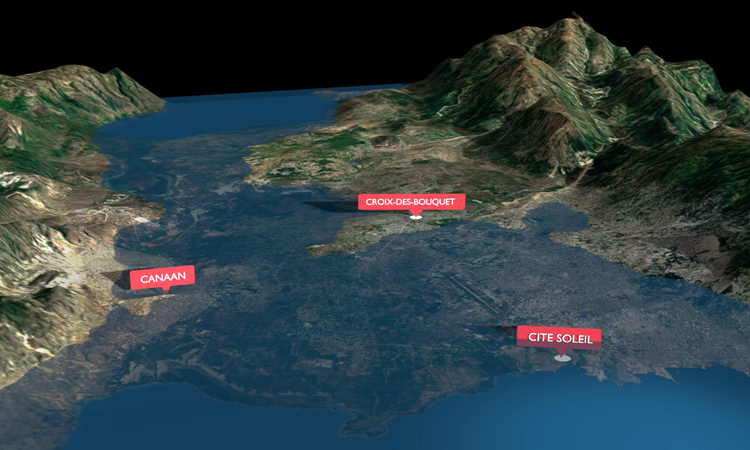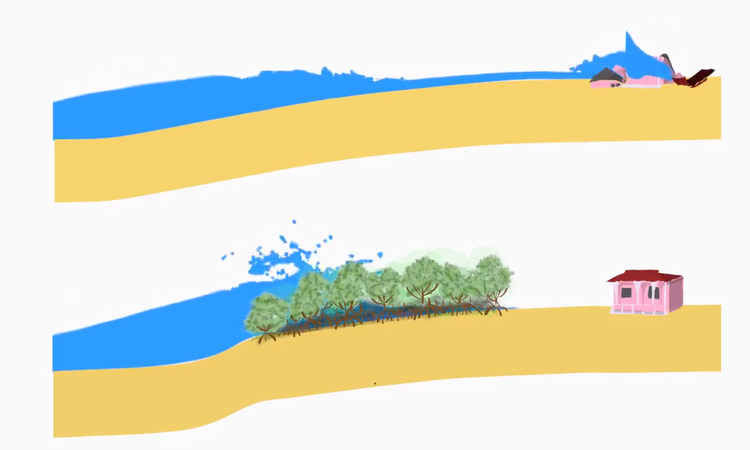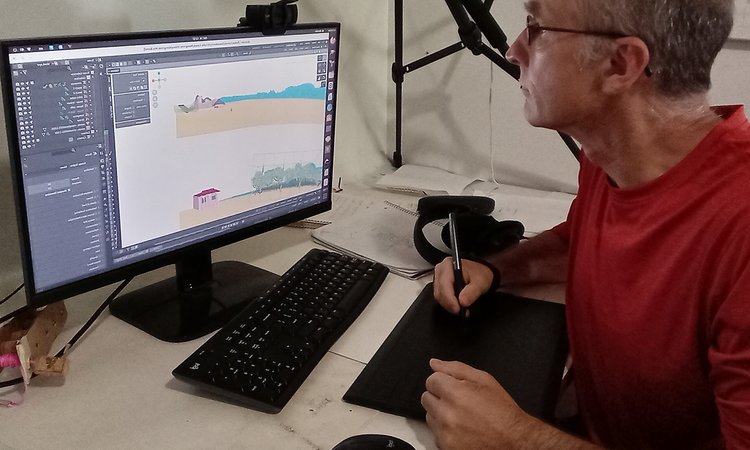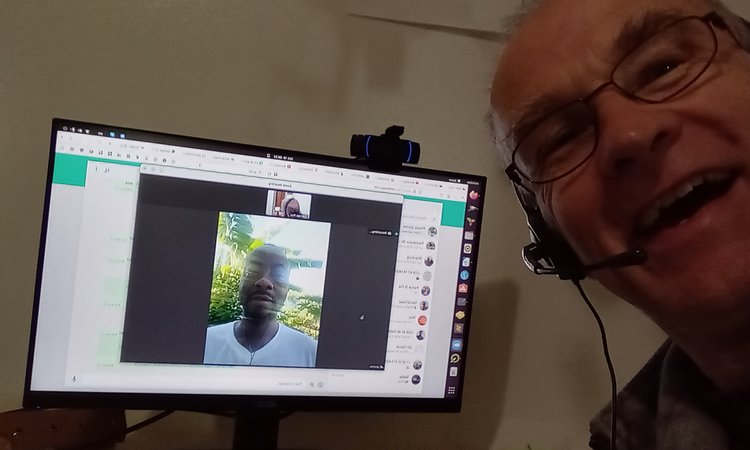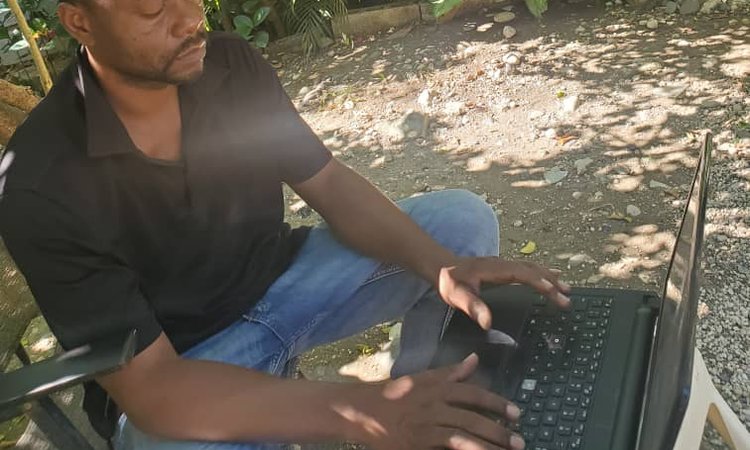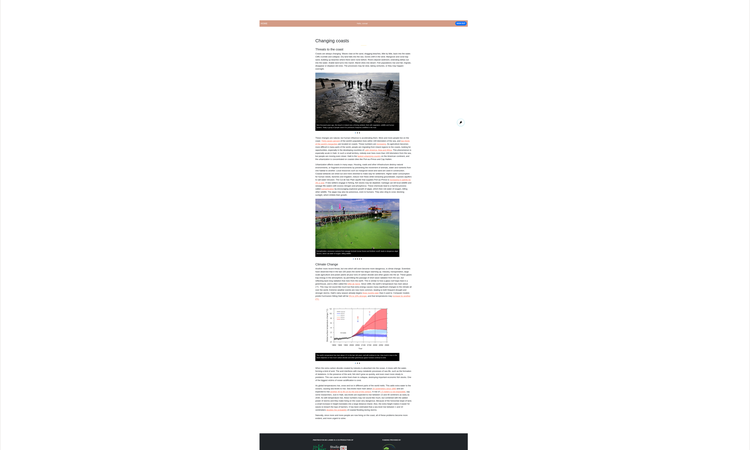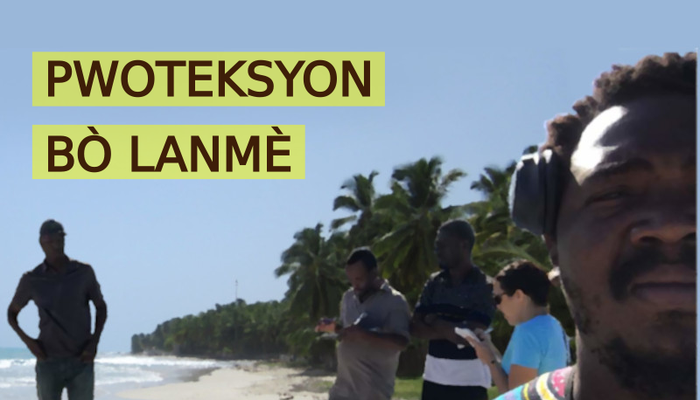
Studio Canek to co-produce a workshop for Haitian journalists on coastal resilience
Studio Canek receives funding to co-produce a workshop for Haitian journalists on coastal resilience
We're teaming up with Haiti Climat again! This time, we've received a grant from the Environmental Journalism Network to produce an online workshop for Haitian journalists about coastal resilience. The goal is to help local journalists in coastal communities inform audiences about the effects of climate change, from sea level rise to extreme weather, and what they can do about it. We've already worked with Haiti Climat in covering the country's nascent Marine Protected Areasand this project is a natural continuation of that work.
Check out Neglected Waters, our previous project with Haiti Climat.
It might seem like a bad time to be focusing on environmental journalism when the country is seeing its most violent social unrest in decades. Surely people have more immediate concerns! But in a tiny country where resources hang on a knife's edge, the health of the environment is intimately linked to human welfare. A dying fishery, uneven access to water, thinning soils all make survival more difficult for the poorest and climate change, which will make this all worse, is not going to wait. In fact, although no one has conclusively proven a connection, it is worth noting that the current unrest comes on the heels of an unusually aggressive drought in parts of the country.
Fortunately, our partner, Haiti Climat, was founded precisely to put the environment onto the Haitian front pages, on equal footing with the rest of the news. "The media only want to talk about politics and football," laments co-founder Patrick Saint-Pre, somewhat jokingly. And the audience for these stories is waiting. When I recently wrote about mangrove restoration in Haiti, I expected people to tell me that the unrest would be too great a distraction to recruit local help. On the contrary, said several sources. People living near mangrove ecosystems are often glad of an opportunity to take a break from the grim headlines and do something positive for their communities.
Surprisingly, for a country in which no one lives more than 100 kilometers from the sea, coastal environments receive some of the least attention. This might be because, as Haitian filmmaker Arnold Antonin eloquently argues in his documentary Ainsi Parla la Mer Haitians view the sea with distrust, a collective memory of the slave shipping that brought their ancestors to the island. But it might just be that the country has not developed picturesque tourist beaches to the extent of its Caribbean neighbours. The coast is something you use, or ignore.
Whatever the reason, we hope our workshop will change this for the better. Named Pwoteksyon Bò Lanmè, the course will feature exclusive interviews with experts from Haiti and around the world, animated explainer videos, and data on projected sea level rise, temperature change and other urgent indicators of what Haiti's coasts will be facing soon. It will explain important scientific concepts such as biological and ecosystem resilience, illustrate mitigation methods from around the world and offer tips and story ideas to journalists. Much of the material is impossible or difficult to access for local journalists and it will be made available to participants in a database they can cite and reprint in their own articles. The course will be presented in Haitian Creole, and Haiti Climat will offer reporting bursaries to selected participants.
Of course, the unrest has taken its toll on our Haitian colleagues. Internet is patchy, travel is difficult and daily survival takes precedence over working on the modules. We'll be featuring an interview with Haiti Climat writers on what it's like to report on the environment while your country is in chaos, so come back soon (or sign up for our newsletter). Meantime, you can take a virtual visit one of Haiti's Marine Protected Areas, our previous collaboration with Haiti Climat: Neglected Waters.
